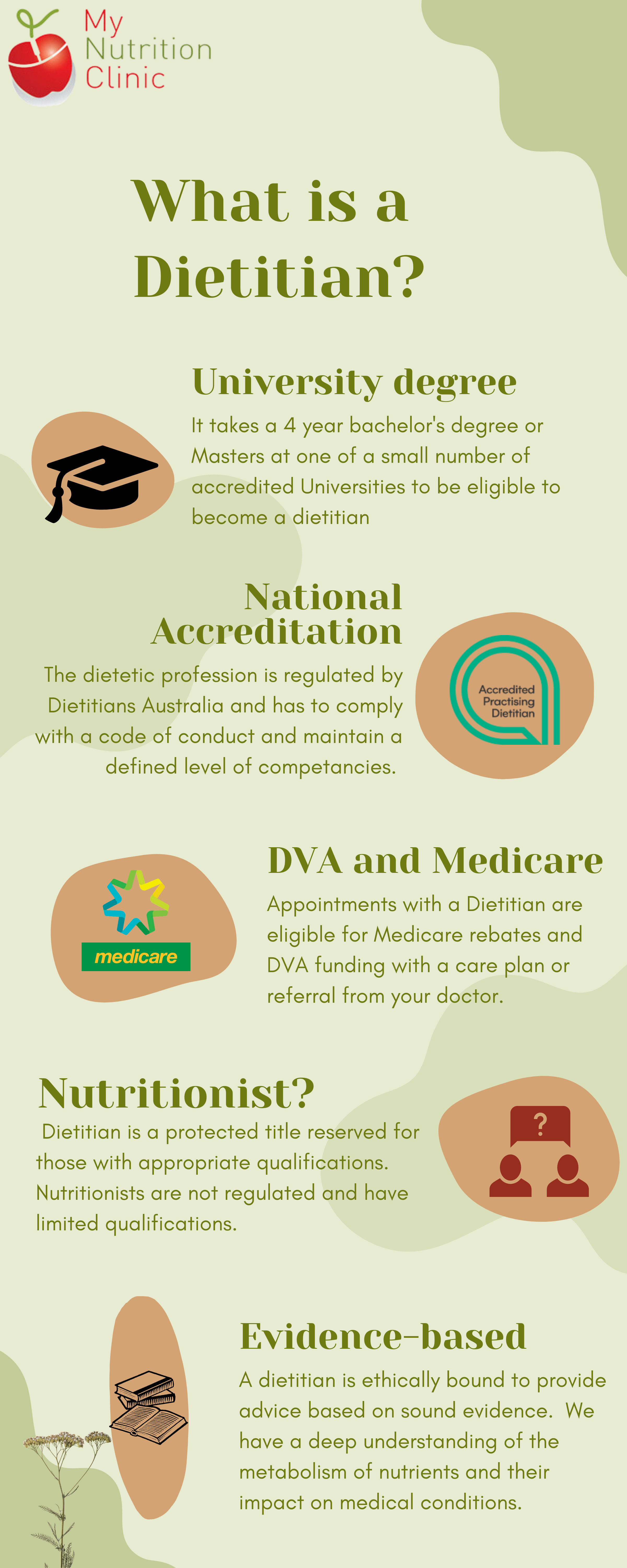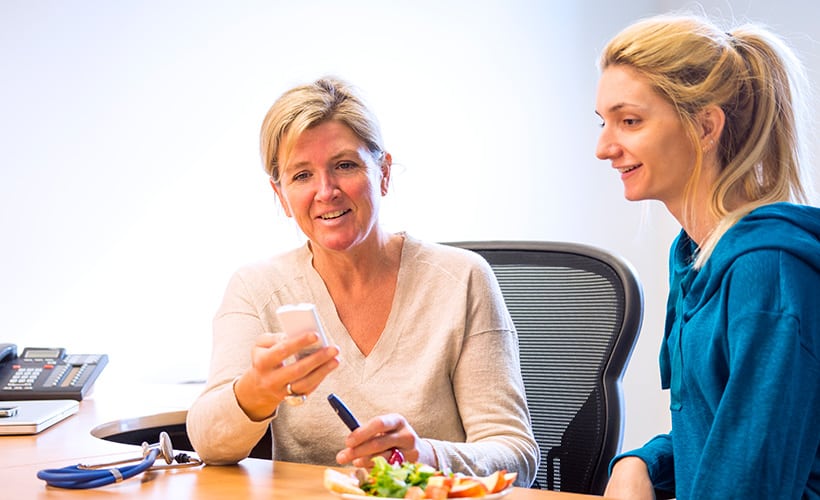All Categories
Featured
Table of Contents
-1
In the United States and several various other countries, a dietitian is a board-certified food and nourishment professional. They are extremely informed in the field of nourishment and dietetics the science of food, nourishment, and their influence on human health and wellness. Via extensive training, dietitians acquire the competence to provide evidence-based clinical nutrition therapy and dietary therapy tailored to meet a person's demands.
-1To earn these credentials dietitians-to-be should first make a bachelor's degree or equal credit histories from a recognized program at a college or college. Commonly, this requires an undergraduate science level, including programs in biology, microbiology, natural and inorganic chemistry, biochemistry and biology, anatomy, and physiology, as well as even more specific nutrition coursework.
Postpartum Nutritionist
-1This enables them to assess severe demands, focusing on deadly problems. Inpatient and outpatient dietitians also provide nourishment education and learning to people with specialized requirements, such as those freshly out of surgery, in cancer cells treatment, or detected with persistent diseases like diabetes mellitus or kidney condition. In the outpatient setting, they provide extra comprehensive nutritional therapy functioning in the direction of a nutrition-oriented goal.
-1They can also advocate for public policies with a concentrate on nutrition, food, and health and wellness issues. Study dietitians usually operate in study hospitals, companies, or universities. They run within a research team headed by a main private investigator and lug out nutrition-focused interventions. Once dietitians have gained their credentials and are operating in the field, they can take place to specialize in a particular subcategory, such as pediatric medicines or sports dietetics.
-1Others may work as wellness and nutrition specialists in media or as public audio speakers (Best Dietitian for Weight Loss). Dietitians are certified to handle nutrition therapy across a span of severe and chronic conditions.
Pregnancy Nutrition – Withers
-1In many states, such as Alaska, Florida, Illinois, Maryland, Massachusetts, and Pennsylvania, RDs and CNSs are provided the very same state permit, typically called a Certified Dietitian Nutritionist (LDN) permit. In states that do not manage making use of this term, anyone with a rate of interest in diet plan or nourishment may call themselves a nutritional expert.
-1Since uncredentialed nutritionists generally lack the expertise and training for medical nutrition therapy and nourishment counseling, following their advice can be thought about damaging (). Before consulting a nutritionist, you may intend to check whether your state controls that might utilize this title. In the U.S. states that don't regulate the term, no levels or qualifications are required to be a nutritionist.

-1
In states that do mandate licensure, the CNS or RD credential may required. Those with CNS credentials are health and wellness specialists like nurses or medical professionals with innovative health and wellness degrees who have chosen added coursework, finished monitored method hours, and passed an exam supervised by the Board for Qualification of Nutrition Specialists.
-1While some of these approaches might have durable clinical support, others might not. Offering nutrition guidance without the correct expertise and training can be dangerous, particularly when counseling those with health and wellness problems. Because of this, if you are taking into consideration seeking advice from a nutritional expert, you might want to ask if they are a CNS or have state licensure or accreditation, or an additional credential.
Nutritionist For Weight Loss ( Bunbury)
-1Several states specifically manage this term. Furthermore, nutritional experts might seek an innovative CNS accreditation.
-1It can be challenging to assist individuals make genuine, long-term changes in their lives. Both dietitians and nutritional experts supply a variety of nutrition-based solutions to customers.
-1They should have finished some level of education and learning in their field. They are additionally required to have actually finished approximately a year of monitored job, functioning within a led program at a healthcare facility, providing organization, or area body. Dietitians have much greater assumptions put on their capacities and level of professionalism and trust.
-1This indicates that there is no body that supervises their credentials and no particularly stringent guidelines that nutritionists demand to comply with in order to be able to exercise. Dietitians, on the various other hand, are registered with nationally recognised bodies, such as the Dietitians Association of Australia. They must follow by the National Competency Criteria for Dietitians.
Best Dietitian For Weight Loss – Bunbury 6230

-1
However, you can exercise as a nutritionist without the exact same level of accreditation as a dietitian. Nutritionist programs can vary in length and top quality, with some as brief as 6 weeks and covering far much less material than a dietetics course. Relying on your education and learning supplier, you can gain a substantial amount of expertise through studying a basic nutrition course; nonetheless it is essential to explore the course web content prior to starting.
-1This can include participating in market seminars or reading industry publications. Nutritionists, on the other hand, normally gain their certifications in order to supplement various other qualifications and give better recommendations to their clients. Nutritionists can get work in a vast array of areas, including public health and wellness recommendations, suggestions for individuals, and working with personal organisations.
-1Nutritional experts can deal with sporting organisations, fitness centers, schools and encourage media outlets on standard terms and proper usage of terms. Typically, individuals will certainly seek the services of a nutritional expert to aid them in obtaining into form. Dietitians can work in most of the same duties as nutritionists. With a higher level of certification, they can quickly go into a duty that a nutritional expert would hold, given they are otherwise equivalent.
Dietitian For Ibs – Withers 6230
-1Dietitians often collaborate with even more medically sensitive customers. These can include those with diabetic issues, allergic reactions, weight problems, cancer and intestinal conditions. As a result of the high degree of understanding needed to offer solutions to these individuals, just recognized dietitians are permitted to provide treatment. Some of the higher degree duties with health care organizations can be really satisfying, and pay rather well.
-1In Australia there is a difference between a dietitian and other dietary wellness suppliers including nutritionists. All dietitians are nutritionists, however nutritionists without a dietetics qualification can not call themselves a dietitian. While there are resemblances in between a dietitian and nutritionist there are distinctions in qualifications and law. The dietetic career is controlled and satisfies rigorous standards as set out by the National Partnership of Self Regulating Wellness Professions (NASRHP).
-1Dietitians with the Accredited Practising Dietitian (APD) credential devote to continuous training and education throughout their occupations. As a profession, nutritionists are not controlled in Australia under NASRHP or certified under a solitary governing body.
Enhance Heart Health With Nutrition – Withers 6230
-1If you have a chronic health and wellness condition and a care strategy from your GP, you might be able to assert a Medicare discount when you see an APD. The main function of people functioning in the career of dietetics is symbolized in this declaration: The career of dietetics contributes to the promo of wellness and the avoidance and therapy of health problem by optimizing the nutrition of populaces, neighborhoods and people. Find a Dietitian.
Table of Contents
Latest Posts
Caylah Batt (Shelley 6148)
Home 2
Our Values
More
Latest Posts
Caylah Batt (Shelley 6148)
Home 2
Our Values